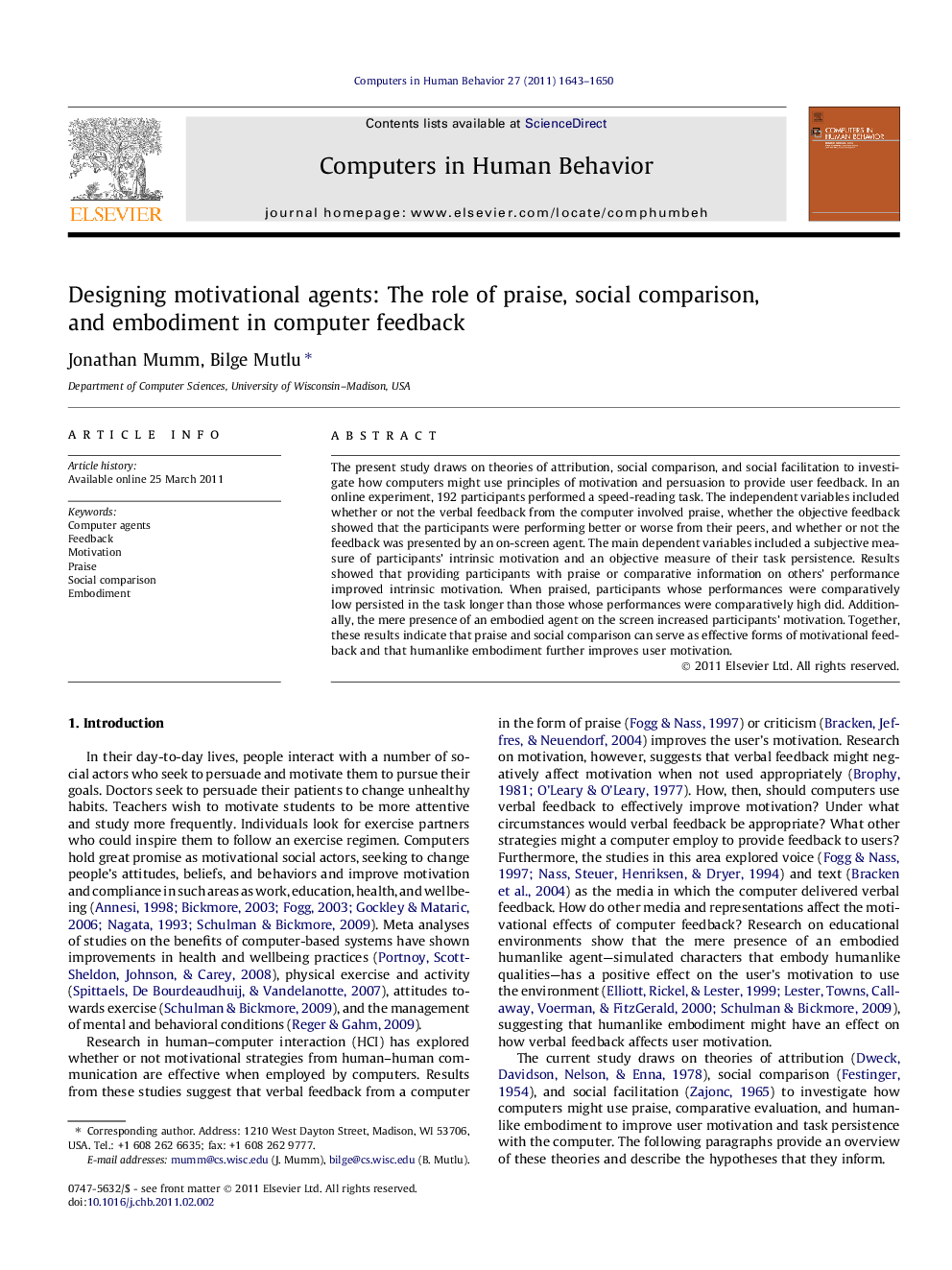| کد مقاله | کد نشریه | سال انتشار | مقاله انگلیسی | نسخه تمام متن |
|---|---|---|---|---|
| 350972 | 618461 | 2011 | 8 صفحه PDF | دانلود رایگان |

The present study draws on theories of attribution, social comparison, and social facilitation to investigate how computers might use principles of motivation and persuasion to provide user feedback. In an online experiment, 192 participants performed a speed-reading task. The independent variables included whether or not the verbal feedback from the computer involved praise, whether the objective feedback showed that the participants were performing better or worse from their peers, and whether or not the feedback was presented by an on-screen agent. The main dependent variables included a subjective measure of participants’ intrinsic motivation and an objective measure of their task persistence. Results showed that providing participants with praise or comparative information on others’ performance improved intrinsic motivation. When praised, participants whose performances were comparatively low persisted in the task longer than those whose performances were comparatively high did. Additionally, the mere presence of an embodied agent on the screen increased participants’ motivation. Together, these results indicate that praise and social comparison can serve as effective forms of motivational feedback and that humanlike embodiment further improves user motivation.
Research highlights
► Feedback in the form of praise or social comparison improves motivation.
► Praise improves motivation only when no social comparison is present.
► Praise improves motivation with low-performers, but not with high-performers.
► Presence of an on-screen agent improves motivation.
Journal: Computers in Human Behavior - Volume 27, Issue 5, September 2011, Pages 1643–1650